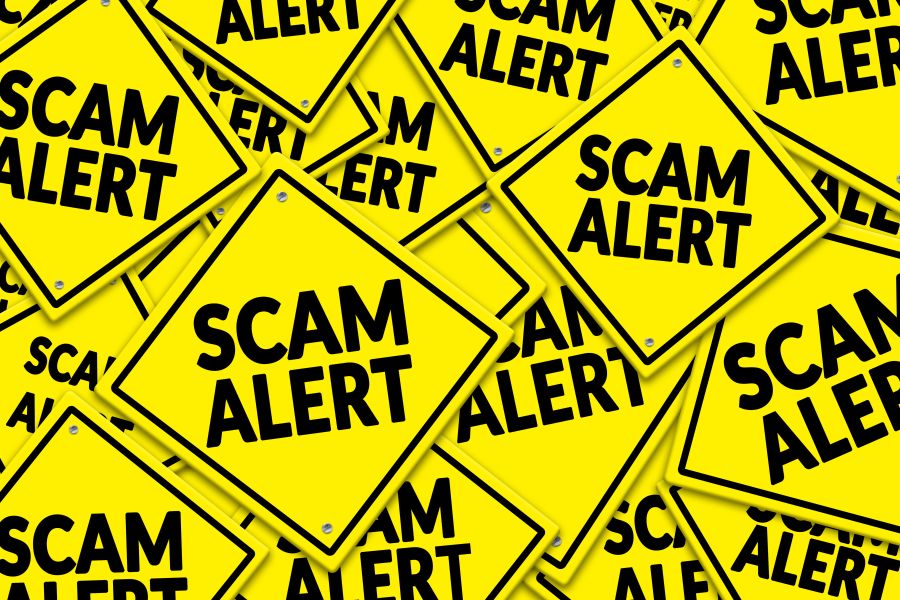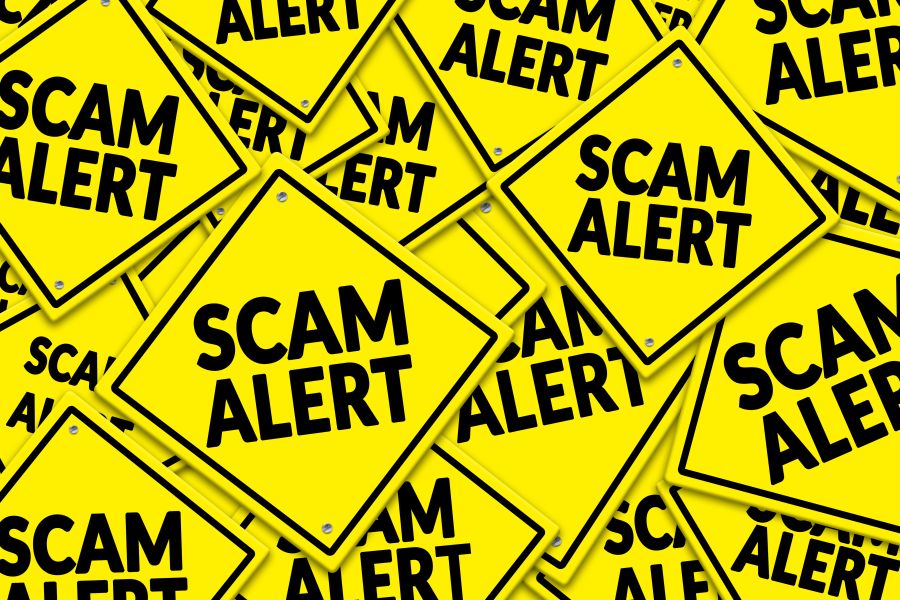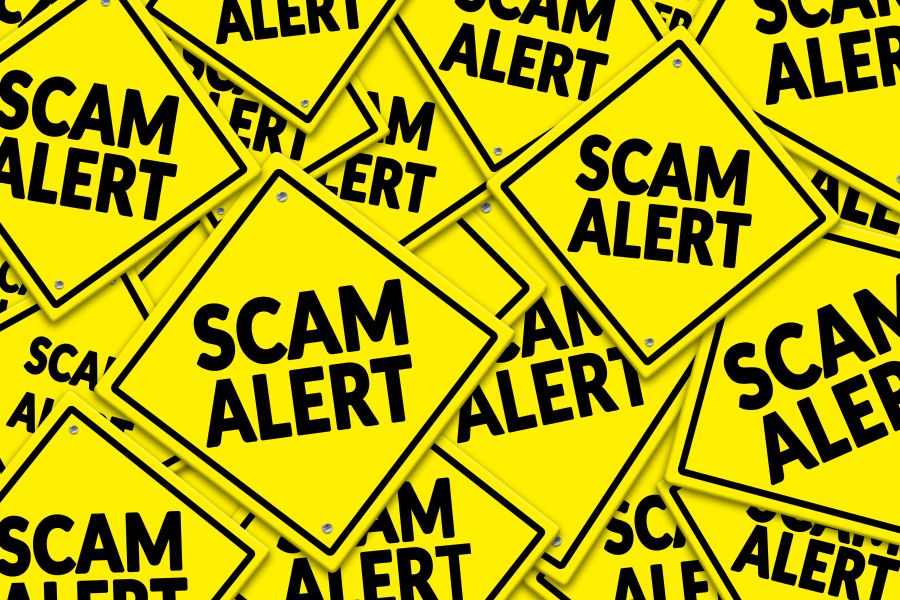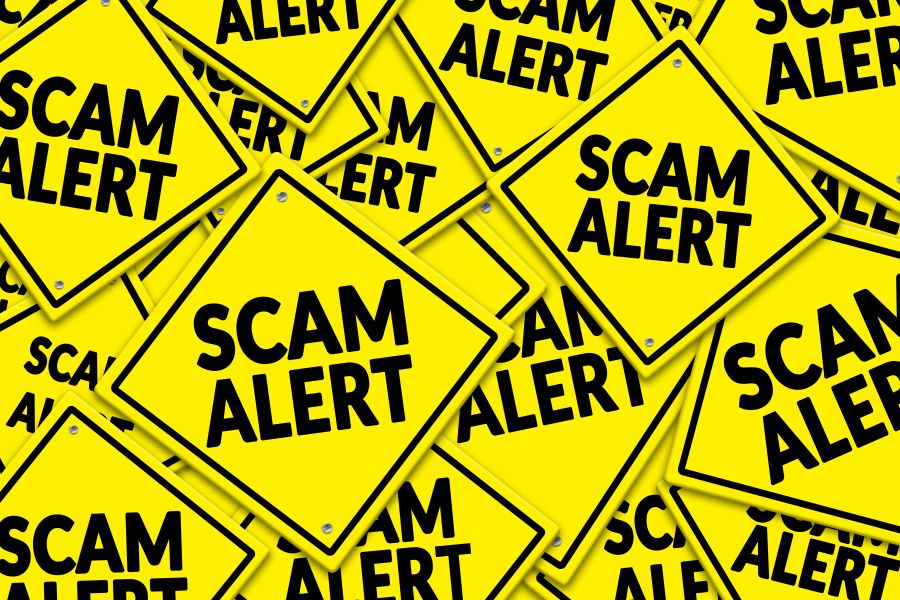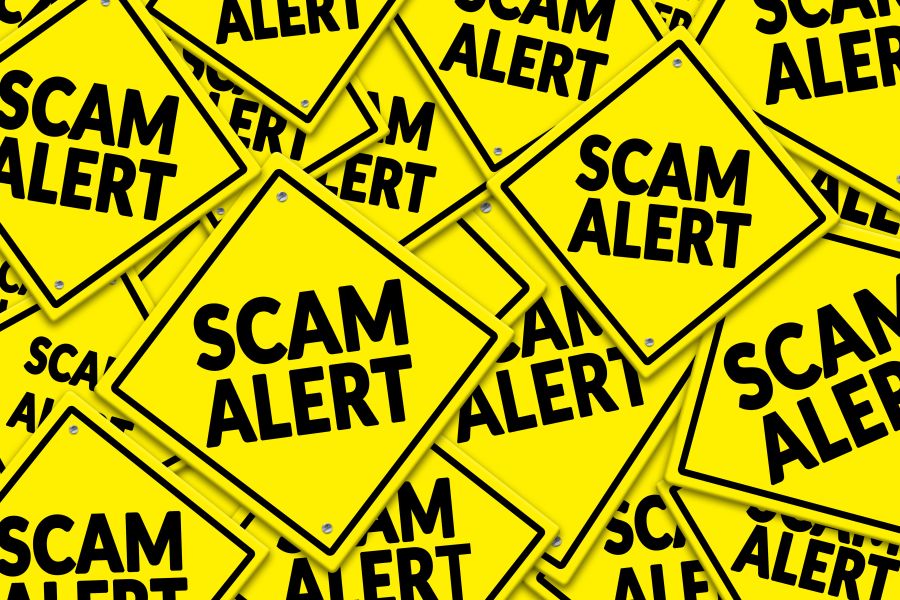Without trust between you and your employees, your business probably wouldn’t be very successful. Delegating responsibility, sharing ideas, working as a team — all require a certain level of trust. However, too much trust can lead to occupational fraud and conflicts of interest. To maintain the proper balance, establish a policy that outlines your disclosure expectations and require employees to follow it. Purchasing power What constitutes conflict of interest? Let’s look at a fictional example: Veronica is the manager of a manufacturing company’s purchasing department. She’s also part owner of a business that sells supplies to the manufacturer — a fact she hasn’t disclosed to her employer. And, in fact, Veronica has personally profited from her business’s lucrative long-term contract with her employer. What makes this scenario a...

According to the Federal Trade Commission, veterans lost approximately $60 million to fraud in 2020. Active-duty military personnel and their spouses and dependents also suffered big financial losses to fraud last year. In fact, in 2020, military consumers lost more than the general public to fraud — a median $600 compared to $311 for nonmilitary consumers. Here’s what you and military friends and family need to know. Beware of imposters The greatest fraud threat to this group is “imposter” fraud. In this scheme, a criminal calls, emails or texts potential victims and pretends to be working for the Veterans Administration or another government agency. Perpetrators may claim they need personal information, such as Social Security or bank account numbers, to authorize the release of benefits. Instead, they...
Credit and debit card fraud was already a big problem when COVID-19 hit. Although how much payment card fraud increased in 2020 depends on the source, most experts agree that, like most types of fraud, it flourished during the pandemic. COVID-19-related prevention and treatment scams and increased online shopping likely contributed to this rise. If you become a victim, it’s probably good to hear that the law protects consumers from serious losses. But to reduce financial liability, you need to follow the reporting rules carefully. Unauthorized credit card charges If your credit card is lost or stolen and you report the loss to the card issuer before your card is used in a fraudulent transaction, you can’t be held responsible for any unauthorized charges. If you report it...
Most restaurants are finally reopening to in-person dining. And while you may now be thinking about luring customers back, hiring enough workers and managing supply-chain shortages, one issue has remained the same: fraud. Restaurants often face fraud threats from employees, customers and vendors. So now isn’t the time to drop your guard. Potential risks Your restaurant may have high transaction volumes but lack the technology linking point-of-sale, inventory and accounting systems. This leaves gaps for fraudsters to exploit. Employees could, for example, provide food and drinks to friends without entering the sales — or ring up only a portion of friends’ bills. They might issue voids or refunds when there was no original sale and pocket the proceeds. Or they could overcharge customers by, say, charging for...
To use their ill-gotten cash, criminals must make it appear legitimate. That’s the job performed by money launderers, who increasingly use cryptocurrencies. According to digital currency analytics company Elliptic, crooks use them to launder $3 to $4 billion per year. With over 4,000 digital currencies to choose from, they gain access to a liquid asset that’s cost effective and usually untraceable. But cryptocurrencies may also have something to offer legitimate businesses. Let’s look at the pros and cons. Accepting cryptocurrencies Some banks deny customers the ability to deposit digital currencies. They often cite laws that make it illegal to process cryptocurrencies, concerns about security and a lack of infrastructure to support such transactions. But even though banks are reluctant to embrace cryptocurrency, there are some potential benefits for businesses....
Compiled annually, the “Dirty Dozen” lists a variety of common scams that taxpayers may encounter anytime but many of these schemes peak during filing season as people prepare their returns or hire someone to help with their taxes. This year's "Dirty Dozen" is separated into four separate categories: Pandemic-related scams like Economic Impact Payment theft (See Blog Post 1049) Personal information cons including phishing, ransomware and phone "vishing" (See Blog Post 1050) Ruses focusing on unsuspecting victims like fake charities and senior/immigrant fraud (See Blog Post 1051) Schemes that persuade taxpayers into unscrupulous actions such as Offer In Compromise mills and syndicated conservation easements (This Blog Post) The Internal Revenue Service, in IR 2021-144, concluded the "Dirty Dozen" list of tax scams with a warning to taxpayers...
Compiled annually, the “Dirty Dozen” lists a variety of common scams that taxpayers may encounter anytime but many of these schemes peak during filing season as people prepare their returns or hire someone to help with their taxes. This year's "Dirty Dozen" is separated into four separate categories: Pandemic-related scams like Economic Impact Payment theft (See Blog Post 1049) Personal information cons including phishing, ransomware and phone "vishing" (See Blog Post 1050) Ruses focusing on unsuspecting victims like fake charities and senior/immigrant fraud (This Blog Post) Schemes that persuade taxpayers into unscrupulous actions such as Offer In Compromise mills and syndicated conservation easements (See Blog Post 1052) The Internal Revenue Service, via IR 2021-141, continued its "Dirty Dozen" tax scams with a warning for people to watch...
Compiled annually, the “Dirty Dozen” lists a variety of common scams that taxpayers may encounter anytime but many of these schemes peak during filing season as people prepare their returns or hire someone to help with their taxes. This year's "Dirty Dozen" is separated into four separate categories: Pandemic-related scams like Economic Impact Payment theft (See Blog Post 1049) Personal information cons including phishing, ransomware and phone "vishing" (This Blog Post) Ruses focusing on unsuspecting victims like fake charities and senior/immigrant fraud (See Blog Post 1051) Schemes that persuade taxpayers into unscrupulous actions such as Offer In Compromise mills and syndicated conservation easements (See Blog Post 1052) The Internal Revenue Service, via IR 2021-137, continues its "Dirty Dozen" scam series with a warning to taxpayers to watch...
Compiled annually, the “Dirty Dozen” lists a variety of common scams that taxpayers may encounter anytime but many of these schemes peak during filing season as people prepare their returns or hire someone to help with their taxes. This year's "Dirty Dozen" will be separated into four separate categories: Pandemic-related scams like Economic Impact Payment theft (This Blog Post) Personal information cons including phishing, ransomware and phone "vishing" (See Blog Post 1050) Ruses focusing on unsuspecting victims like fake charities and senior/immigrant fraud (See Blog Post 1051) Schemes that persuade taxpayers into unscrupulous actions such as Offer In Compromise mills and syndicated conservation easements (See Blog Post 1052) Economic Impact Payment theft A continuing threat to individuals is from identity thieves who try to steal Economic Impact Payments...
Compiled annually, the “Dirty Dozen” lists a variety of common scams that taxpayers may encounter anytime but many of these schemes peak during filing season as people prepare their returns or hire someone to help with their taxes. On 6/28/21 the Internal Revenue Service, via IR 2021-135, began its "Dirty Dozen" list for 2021 with a warning for taxpayers, tax professionals and financial institutions to be on the lookout for these 12 nefarious schemes and scams. This year's "Dirty Dozen" will be separated into four separate categories: Pandemic-related scams like Economic Impact Payment theft (See Blog Post 1049) Personal information cons including phishing, ransomware and phone "vishing" (See Blog Post 1050) Ruses focusing on unsuspecting victims like fake charities and senior/immigrant fraud (See Blog Post 1051) Schemes...







